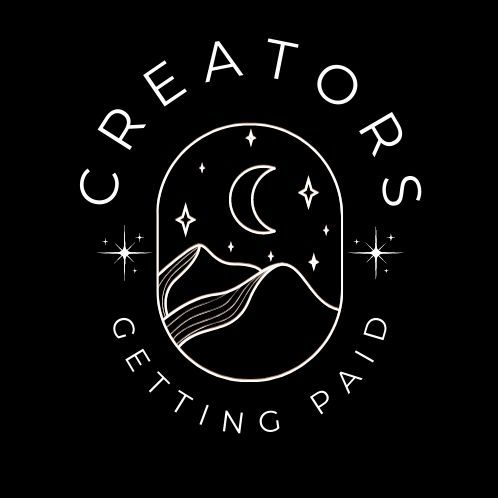One of the reasons why I love podcasting is that it allows people to share their voice. Literally, share their points of view about the world, make people laugh with their humor, share one’s expertise and educate their listeners. I love that podcasting is available to anyone. When I started podcasting I made money of the same podcasting mistakes that I want you to avoid and I thought I would share some things to think about.
*In order for me to support my blogging activities, I may receive monetary compensation or other types of remuneration for my endorsement, recommendation, testimonial and/or link to any products or services from this blog. Please read my disclosure and privacy policy here.*
Podcasting Mistakes to Avoid (Everyone Listen Up!)
1. Not being clear about the episode intent-What in the hell do I even mean “episode intent?” Basically, what is the purpose of your podcast episode?
- Educate your audience about a specific topic? Are you going to send them to a helpful resource, platform or person?
- Deepen awareness around a topic? Right now I’m working on a Student Loan Forgiveness series and the goal is to have a deeper conversation than the freaking soundbites we always hear in the news.
- Make people laugh. Does your comedy show actually make people laugh? Is it funny?
- Take people on a journey. Some shows are just wild and take the listener on a ride.
2. What’s the listener’s intent-what are they hoping to get from the show? A problem solved? Resources? Entertainment? It’s my view that most hosts forget to ask this question before recording their next episode. Asking yourself WHY a listener clicked on a specific episode is so important. Make sure that you’re answering the question that you posed in your topic. Here are some examples:
- A podcast episode about making more money online should include:
- At least 3 pain points to making money only
- At least 3 solutions to their problem: a knowledgable person, an inexpensive tool like a book and something like a course or product that can help them take care of their problem FAST.
3. Not helping a guest sound their best-Eventually you’ll get to the point where you can hear how the audio should sound both for you and your guest. Some helpful tips:
- Send a run of show to your guest as soon as you schedule your conversation.
- Share the does and don’ts such as:
- Do wear earbuds or headphones
- Pull your hair away from your earbuds, your hair will brush against them and make a staticky sound.
- Do record in the quietest place possible.
- Try to record in a small room (if possible)
- Send over a list of potential questions so that your guest feels more prepared.
4. Not helping a guest show up at their best-Always let your guest know if you edit your show, or will edit out a comment if they misspoke. They have to make this known to you during the conversation. If you don’t edit think of other ways you can help them show up as their best. Recognize when a guest isn’t doing their best and help guide them out of a moment when they’ve tightened up during the conversation.
5. Typing during recoding-I hate this! It’s so distracting and feels like the host isn’t paying attention to their guest.
Related Podcasting Episodes
6. Not editing your show-There is a point when you just need to edit your show. You don’t have to edit your show the first or even the second year. But, by the third year the lack of editing may impact your listener experience.
7. Too many calls to action=confusing to the listener-A call to action would be one of the following requests to your listener such as:
- “Please sign up for my email list”
- “Listen to the following episode that talks about XYZ after you listen to the show”
- “Buy an early bird ticket to my conference.”
Asking listeners to take too many actions may cause them to take no action at all. I’m working to have a maximum of two calls to action in my shows. Typically, one is to a helpful resource/opt-in that I’ve created for the listener. The second call to action may direct the listener to listen to another episode or participate in an upcoming event that I may be hosting.
8. Rambling-This drives me crazy! So many shows are way too long because the host rambles. I’ve rambled in the past and I work really hard to avoid doing this. Having a run of show helps keep me organized and focused during my interviews.
9. Not having a show framework-I just mentioned a run of show. Here’s an example of what a framework could look like (very similar to what I do right now)
- Opening comments
- Music
- Show intro
- Pre-Roll (if you have one)
- Show content
- Q & A
- Recap
- Helpful resource call to action
- Outgoing music
10. Forgetting the listener-This can happen not only in a podcast episode, but when you’re delivering a talk, running a session or panel or acting. Always include your listener in your conversation. You can do that by:
- Asking them a question “Listeners what do you think about XYZ? DM me your thoughts on Twitter.”
- Record listener feedback
- Run a giveaway during your show
- Do a “live” episode
- Create a mini-series that involves guests from your audience
Additional Mistakes to Avoid
11. Not editing your show after a significant amount of time running your project-There’s a time when you have to reevaluate, assess and give your product some love.
12. Building your entire project on a platform that YOU DON’T OWN-This means that you need at least a simple website that hosts your show notes and an embedded podcast player even though many people consume content via mobile.
13. Listening to people who aren’t achieving the goals that you would like to achieve with your show. I see this happening most often with monetization strategies.
14. Not having a mix of evergreen and in the moment content. Try to create shows that are relevant for more than a month. The longer they are relevant the more likely you will be able to get listens for that episode.
15. Forgetting to market your older content and failing to have a marketing strategy for your show. Are you:
- Sharing your content on relevant threads?
- Are you adding content to Pinterest-it’s a massive visual Search Engine
- Have you considered using TikTok to drive traffic to your shows, books, courses, etc?
- Are you in Reddit and the sub-Reddits (Not for me, but a VERY smart strategy)
If you’ve made these mistakes they’re pretty easy to fix. It’s also important to point out that making mistakes is an important part of any content creation journey. It happens. Don’t get too in your head about it.

